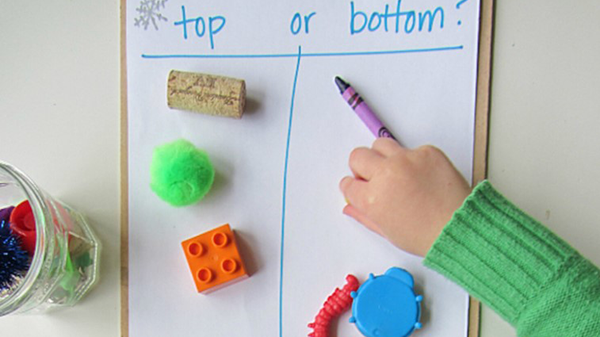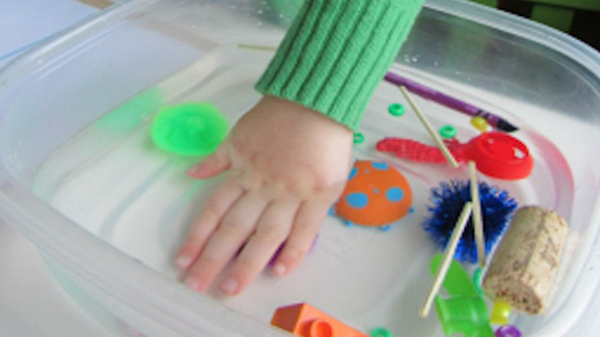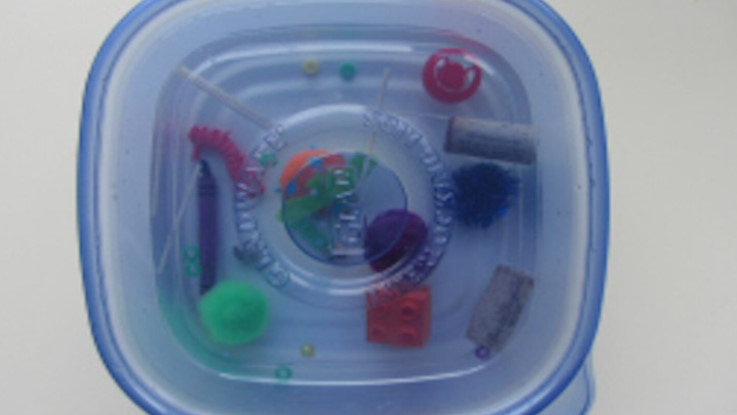
Sink or Float? The Ice Block Science Experiment
Get your child thinking about why some things float and some sink with this easy activity that freezes toys into an ice block. Your child can observe which items stick out on top of the ice, and which items get frozen on the bottom.
Materials
- A plastic container with a lid to help avoid spills
- Water
- A sheet of paper
- Pencil, pen, or markers
- Toys or small items like pom-poms, crayons, beads, blocks, and corks
Directions
- Start by having your child make predictions about what will happen to the toys when the water is frozen. (“Will the toy float and freeze on top of the water? Or will it sink and freeze on the bottom?”) Write down the predictions.

- Add the toys to the water and let the container sit for a few minutes. Your child might notice that some items, like a crayon or pom-pom, might float happily for a little while. As they absorb water, they start to sink.

- When your child is finished observing the items floating or sinking in the water, place the lid on the container and put the whole thing in the freezer overnight.

- When frozen, explore the results! Have your child feel the ice to notice what items are sticking out of the ice on top, then carefully pop the ice block out of the container to talk about what’s frozen at the bottom.
- Place the block of ice back into the container and let the ice melt at room temperature to “free” the toys. (Or speed up the process using hot water!)
Iowa PBS STEAM Activities and Crafts provided by PBS KIDS Parents.